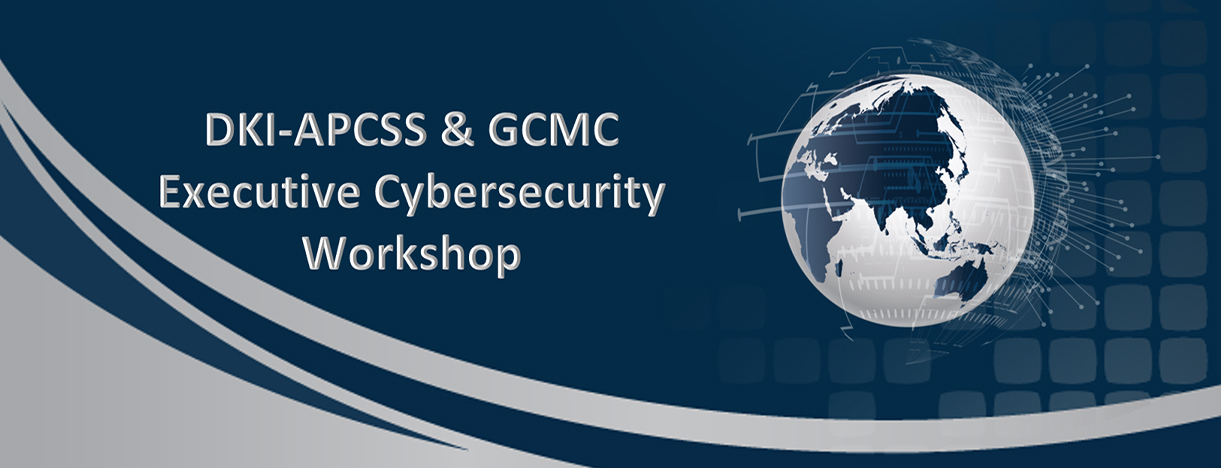
Aloha!
Welcome to the Daniel K. Inouye Asia-Pacific Center for Security Studies (DKI APCSS) & George C. Marshall Center Executive Cybersecurity Workshop (GCMC) “Executive Cybersecurity Workshop.”
19-23 April 2021
Monday-Friday, 07:00 – 10:00 hours Central European Time (GMT +1)
The Executive Cybersecurity Workshop is designed for leaders to build awareness of a broad range of topics that challenge cybersecurity governance, which is the process of using strategies, laws, policies, and regulations to implement cybersecurity across government and civil-society. It is a regional workshop providing participants with an opportunity to learn best practices, internalize different perspectives, and apply new knowledge gained from partner nations in the Indo-Pacific region. The theme of the workshop is “Cybersecurity Interconnectivity and Interdependencies” and features a variety of distinguished partner-nation panelists from government, defense, academia, and private industry. We look forward to your participation!
Event Schedule
All times below are Central European Time (CET/GMT+1)
Time Zone Converter
Monday
0645-0700 Login
0700-0815 Workshop Opening
- Keynote Speaker: Mr. Paul ASH, Director of National Security Policy Directorate, New Zealand
- Topic: Regional Cybersecurity Challenges and Trends
- Commander Dick Foderman, Chief of Plans, US Fleet Cyber Command
0815-0930: Discussion Groups
Tuesday
0645-0700 Login
0700-0800 The Framework of Responsible State Behavior
- Dr. Benjamin Ang, Deputy Head of Centre of Excellence for National Security, S. Rajaratnam School of International Studies (RSIS)
- Ms. Szilvia Toth, Cyber Security Officer in the Organization for Security and Cooperation in Europe (OSCE) Secretariat, Transnational Threats Department
0805-0900 Discussion Groups
0910-1000 Electives #1-3
Wednesday
0645-0700 Login
0700-0800 Assessment, Strategy & Policy
- Dr. James Boorman, Head of Research and Capacity Building, Oceania Cyber Security Centre
- Professor Philip Lark, George C. Marshall Center (GCMC)
0805-0850 Internet Governance
- Mr. Pablo HINOJOSA, Strategic Engagement Director Asia Pacific Network Information Centre (APNIC)
0900-1000 Discussion Groups.
Thursday
0645-0700 Login
0700-0800 Incident Response & Continuity
- Mr. Tomoo Yamauchi, Deputy Director-General, National Center of Incident Readiness and Strategy for Cybersecurity (NISC)
- Mr. Rob Hubertse, H-Security Operations Center, Defense Cyber Security Center
0805-0900 Discussion Groups
0910-1000 Electives #4-6
Friday
0645-0700 Login
0700-0800 Public-Private Partnerships & Cooperation
- Ms. Mihoko Matsubara, Chief Cybersecurity Strategist, NTT Corporation
- Ms. Gaukhar Zhakhmetova, Security Operations Center Analyst, Tengri Labs
0800-0840 Presentations
0840-0900 Closing
Speaker Profiles

Prime Minister’s Special Representative on Cyber and Digital, Cyber Coordinator; National Security Group
Paul leads the National Security Policy Directorate of the Department of the Prime Minister and Cabinet, incorporating the Security and Intelligence Policy and Civil Defence and Emergency Management Policy teams, and the National Cyber Policy Office. The National Security Policy Directorate provides policy leadership on cross-cutting matters relating to national security, intelligence, risk and resilience, working with a wide range of government agencies in the national security sector. The National Cyber Policy Office (NCPO) leads and coordinates the development and implementation of New Zealand’s cyber security policy, and is currently commencing 2018 refresh of New Zealand’s Cyber Security Strategy, working with government agencies, the private sector, and civil society. Paul has led the NCPO since its establishment in 2012. Paul was appointed as Acting Director, National Security Policy, in early 2018. Prior to his present roles, Paul was a career diplomat, most recently serving as Deputy Head of Mission in Brussels from 2008 to 2012, as well as postings and secondments in the Solomon Islands, China and Taiwan. Paul is a graduate of Victoria University of Wellington, where he received a B.A. Hons (1989), and the Chinese Language and Area Studies School of the Foreign Service Institute (1994).
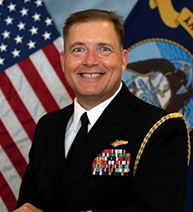
Chief of Plans, J/N 53, US Fleet Cyber Command
Commander (CDR) Froderman is presently assigned to the U.S. Fleet Cyber Command, TENTH Fleet, as the Chief of Plans. He began his career in the Naval Reserve serving as a Cryptologic Technician, and Cryptology Officer. Since then he has led various teams in Information Operations, Psychological Operations, and Naval Cyber Warfare and developed new initiatives (e.g., Cybersecurity Safety) to advance the US Navy’s cyber mission. CDR Froderman has a Masters of Arts in National Security and Strategic Studies from the Naval War College, DAWIA Level 2 certifications in both Systems Engineering and Program Management, and membership in the Acquisition Corps. He is entitled to wear the Bronze Star, Defense Meritorious Service Medal, Meritorious Service Medal with gold star, Navy and Marine Corps Commendation Medal with gold star, Navy and Marine Corps Achievement Medal, Naval Reserve Meritorious Service Medal, Afghanistan and Iraq Campaign Medals, Global War on Terrorism Expeditionary Medal, Sea Service and various other medals and awards.
Presentation Topic: Global Cybersecurity Challenges and Trends
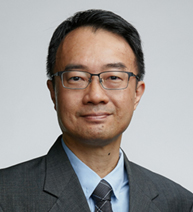
Dr. Benjanmin Ang
Deputy Head of Centre of Excellence for National Security, S. Rajaratnam School of International Studies (RSIS), Singapore
Benjamin Ang is Senior Fellow and Deputy Head of the Centre of Excellence for National Security (CENS) at RSIS. He leads the Cyber and Homeland Defence Programme of CENS, which explores policy issues around the cyber domain, international cyber norms, cyber threats and conflict, strategic communications and disinformation, law enforcement technology and cybercrime, smart city cyber issues, and national security issues in disruptive technology.
Prior to this, he had a multi-faceted career that included time as a litigation lawyer arguing commercial cases, IT Director and General Manager of a major Singapore law firm, corporate lawyer specializing in technology law and intellectual property issues, in house legal counsel in an international software company, Director-Asia in a regional technology consulting firm, in-house legal counsel in a transmedia company, and senior law lecturer at a local Polytechnic, specializing in data privacy, digital forensics, and computer misuse and cybersecurity.
Benjamin graduated from Law School at the National University of Singapore and has an MBA and MS-MIS (Masters of Science in Management Information Systems) from Boston University. He is qualified as an Advocate and Solicitor of the Supreme Court of Singapore, and was a Certified Novell Network Administrator back in the day. He also serves on the Executive Committee of the Internet Society Singapore Chapter.
Presentation Topic: The framework for Responsible State Behavior in Cyberspace

Szilvia Tóth currently works as the Cyber Security Officer at the Secretariat of the Organization for Security and Co-operation in Europe (OSCE), the largest regional security organisation. In her scope of work she is responsible for supporting participating States of the OSCE in cyber related matters, including assistance in developing and implementing cyber Confidence Building Measures. Previously Ms. Tóth was a diplomat at the Ministry of Foreign Affairs and Trade of Hungary for 10 years. As a Coordinator for Cyber Issues she was responsible for international outreach activities on cyberspace issues both in bilateral and multilateral relations as well as for coordination of European Union affairs in the field of telecommunications and information society. She was also a member of the first Hungarian European Union Presidency team in 2011. Before joining the Ministry of Foreign Affairs, she worked in the private sector: at the mobile phone operator Vodafone Hungary and fixed-line telecom service provider United Telecom Investment.
She appeared at a number of national and international conferences and workshops as speaker or moderator on the topic of international cooperation in the field of cyberspace.
She holds a Bachelor’s degree in International communications and a Master’s degree in European Union affairs. She is an alumna of the George C. Marshall European Center for Security Studies, having completed the Program on Cyber Security Studies in 2014 (PCSS 15-1) and was an adjunct faculty member and co-seminar leader at the same course in 2018.
Presentation Topic: Cyber Confidence Building Measures (CCBMs)

Over the last 20 years James has worked in information security management and research across academic and public health sectors in the UK and as a Chief Information Officer for research projects for the Australian government. James is an active member of GFCE Working Group A on Cyber Security Policy & Strategy and guest lectures on information security at the University of Melbourne.
As Head of Research and Capacity Building at the not-for-profit Oceania Cyber Security Centre (OCSC) in Melbourne he leads the OCSC collaboration with the University of Oxford on the Cybersecurity Capacity Maturity Model for Nations (CMM). He has successfully led and co-authored seven CMM reviews in the Oceania region providing reports to governments with specific recommendations to build national cybersecurity capacity and resilience. This work has involved joint missions with partners such as the International Telecommunication Union (ITU), Asia-Pacific Telecommunity (APT), Asia Pacific Network Information Centre (APNIC) and World Bank.
Presentation Topic: Cybersecurity Maturity Model and Indo-Pacific Regional Examples
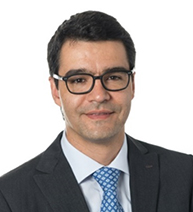
Pablo Hinojosa is an expert in Internet governance with 20 years of experience in both Latin America and the Asia-Pacific regions. He is currently Strategic Engagement Director at APNIC, the Asia Pacific Network Information Centre. He represents the organisation at a senior level with governments, key intergovernmental and treaty organisations, and other key stakeholders. Previous to joining APNIC, he was Regional Relations Manager at ICANN. In this role, he worked with the Latin American Internet community to promote strategic alliances. He also played an active role in the establishment of ICANN’s first office in Washington DC. Before ICANN, he was Director for Multilateral Affairs in the Mexican Federal Telecommunications Commission (COFETEL). As a government official, he represented Mexico at the UN World Summit of the Information Society (WSIS).
Presentation Topic: Internet Freedom, Decentralized Internet Governance & Bottom-up Coordination of Global Private Sector

Back in 1982 I joined the Navy and have been a signaling officer for almost 30 years. Late 2008 I was given the opportunity to establish the Defence Computer Emergency Response Team (DefCERT). In 2013 I left the military service and continued my service in the MOD as a civilian. Throughout these years I worked my way up from Analyst to Advisor to Head of Security Operations which is my current job, which I find really challenging and rewarding at the same time.
I am responsible for the change of direction for the current SOC-capability and am founder of various SOC-concepts that are currently being implemented in the MOD.
Presentation Topic: National-Level incident response and Processes, Procedures, and Information Sharing
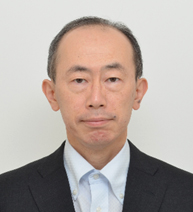
In August 2018, Tomoo Yamauchi assumed the position of Councillor, National Center of Incident Readiness and Strategy for Cybersecurity (NISC). Between 2016 and 2018, he was in charge of Cybersecurity as Counsellor of NISC. He led the preparation of the new Cybersecurity Strategy and the amendment to the Cybersecurity Basic Act. Prior to this position, he was in-charge of policies for the research, development and promotion of space communications at the Ministry of Internal Affairs and Communications (MIC). He has extensive experience in developing Information Communications Technology (ICT) policies in his previous assignments as the Director of Research and Development Office, and Deputy Director of Land Mobile Communications Division and Satellite Mobile Communications Division.
Councillor Yamauchi also spearheaded the protection of information systems of critical infrastructures. He led the effort to facilitate mutual information exchange among various critical information infrastructure industries/sectors and the effective information sharing between the government and related industries. He also played a very active role in preparing the 3rd Basic Policy of Critical Information Infrastructure Protection (summarized in 2014). He joined Ministry of Internal Affairs and Communications in 1989 after being awarded the M.E. degree in applied system science from Kyoto University.
Presentation Topic: Information Sharing and Preparation in National-Level Incident Response
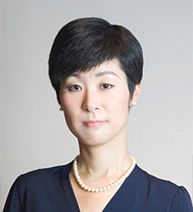
Mihoko Matsubara is Chief Cybersecurity Strategist, NTT Corporation, Tokyo, being responsible for cybersecurity thought leadership. She previously worked at the Japanese Ministry of Defense before her MA at the Johns Hopkins School of Advanced International Studies in Washington DC on Fulbright. Prior to NTT, she was VP and Public Sector Chief Security Officer for Asia-Pacific at Palo Alto Networks. She served on Japanese government’s cybersecurity R&D policy committee between 2014 and 2018.
Mihoko is a prolific writer and has published articles from the Council on Foreign Relations, Lawfare, New America, the RUSI Journal, etc. She published a cybersecurity book (awarded by the Okawa Foundation for Information and Telecommunications) from the Shinchosha Publishing Co., Ltd in 2019. She has spoken at various engagements internationally such as RSA Conference 2018 and 2019 in San Francisco, the EU Cyber Forum 2019 in Brussels, and CyCon 2015 and 2019 in Tallinn, Estonia. She is Adjunct Fellow at the Pacific Forum, Honolulu, and Associate Fellow at the Henry Jackson Society, London.
Presentation Topic: Enhancing Public-Private Cooperation in Preparation & Response to Cyber Attacks

Gaukhar Zhakhmetova is currently a Security Operations Analyst at TengriLabs, which is the largest information security services company in Kazakhstan, where she is refining her skills as a technician and ethical hacker. She had a career shift into information security in 2018, when she led and established one of the first Information Security Operations Centers in Kazakhstan. She holds a master’s degree from the University of Manchester in the United Kingdom. She is an alumna of the George C. Marshall European Center for Security Studies, having completed the Program on Cyber Security Studies in 2018.
Presentation Topic: Enhancing Government Trust and Cooperation to Secure Critical Infrastructures
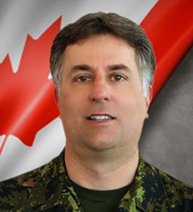
Major Michael Lakatos is currently serving in the Canadian Armed Forces as an Armoured Officer. His current assignment is in the Director General Cyberspace (DG Cyber) where he is advancing policy and capability development as part of the Force Development Team. Prior to his current role, he served in numerous units, Command Headquarters and the Directorate of Land Requirements, where he was the project director for procurement of technical systems.
He has a Bachelors in political science, a Masters in Business Administration, several policy certificates from Harvard University (Cybersecurity, Artificial Intelligence and Machine Learning, and Digital Governance) and the Massachusetts Institute of Technology (Cybersecurity). Major Lakatos is currently pursuing a Masters of Science in Computer Science. He is an alumnus of the George C. Marshall Center (Program on Cyber Security Studies) and the Daniel K. Inouye Asia Pacific Center for Security Studies (Indo-Pacific Orientation Course).
Presentation Topic: Cyber Mission Assurance & Resilience

Sean S. Costigan is a professor at the George C. Marshall European Center for Security Studies. He is an expert in emerging security challenges and is published widely on matters of national security and foresight. His current research and teaching are on the nexus of cybersecurity, crime, and terrorism. He is presently serving as a Senior Adviser to the NATO/GCSP/PfPC Emerging Security Challenges study group, where he leads cybersecurity education efforts; Chair of the Editorial Board, Partnership for Peace Consortium of Defense Academies and Security Studies Institutes; Senior Associate at the Security Governance Group and is an Associate at Vision Foresight Strategy. Prior to joining the Marshall Center faculty, Costigan held positions as an Associate Professor at The New School; Director for Strategic Initiatives, Center for Security Studies ETH Zurich; Visiting Fellow at the University of Calcutta’s Institute of Foreign Policy Studies; Executive Editor at Columbia International Affairs Online; Research Associate for Science, Technology and Defense Industrial Policy at the Council on Foreign Relations; and on the staff of the Weatherhead Center for International Affairs, Harvard University.

the George C. Marshall European Center for Security Studies
Professor Lark is the Founder and Developer of the Marshall Center’s Global Transnational Cyber Security Program. PCSS is a comprehensive nontechnical strategic-level policy program specifically designed for top national leaders including diplomats, legislators, policy-makers, military and law enforcement officers, ministerial staffs, and cybersecurity professionals. He has over 30 years of international strategy, policy-making and planning experience in the cyber domain. His current cybersecurity strategy, policy and capacity building research and work is focused in Europe, Eurasia and Africa.
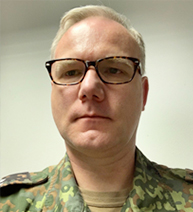
LTC Lossmann is a Deputy Program Director at the George C. Marshall European Center for Security Studies, Garmisch-Partenkirchen, Germany. He joined the George C. Marshall Center in October 2010 and held positions as Program Manager for different regions and departments in the Outreach Branch of the College of International Security Studies. In November 2019 he moved to the Resident Branch of the College as the Deputy Program Director for Cyber Security Studies Program.
Prior to his current assignment, LTC Lossmann served since 2007 as S3 Staff Officer Requirements and Force Planner at the NATO Allied Command Transformation, Staff Element Europe, SHAPE (Mons), Belgium. There he was responsible for the development and enhancement of military NATO requirements for EOD/Engineers and ISTAR.
LTC Lossmann is a recipient of the Cross of Honor in Gold (2020) and Silver (2000), of the Federal Armed Forces the Federal Armed Forces Medal for Services with EUFOR Operations in Relation to Bosnia and Herzegovina (2007), and the ALTHEA ESDP Medal for Services with EUFOR Operations in Relations to Bosnia and Herzegovina (2007).
Workshop Team
For any questions, please contact our team at apcssevents3@dkiapcss.net
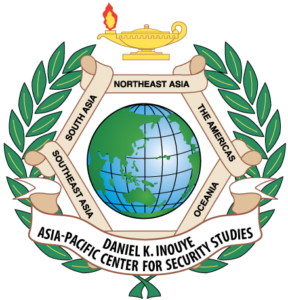
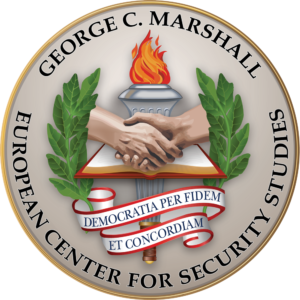
- Workshop Leads
Dr. Inez Miyamoto & Professor Phil Lark - Workshop Coordinator
CDR Keith Wilkins - Workshop Logistics Coordinator
Mick Jinapongpichart
Electives
Participants will have the opportunity to shape their learning by participating in electives on Day 2 and Day 4. The electives include:
ELECTIVE #1
Cyber Mission Assurance & Resilience
Major Michael Lakatos, Canadian Armed Forces, Canada, and Dr. Inez Miyamoto, DKI APCSS
ELECTIVE #2
A “Rules-Based” Approach to Cyber Security
Commander Jonathan G. Odom, GCMC
ELECTIVE #3
5G and National Security
Dr. John Hemmings, DKI APCSS
ELECTIVE #4
Information Resilience in an Age of Disinformation & Misinformation
Dr. Beth Kunce, DKI APCSS
ELECTIVE #5
Cryptocurrencies and Economic Disruption: A Discussion
Dr. Bill Wieninger, DKI APCSS
ELECTIVE #6
Internet of Things: Security and Privacy
Major Nathan Hofferman, DKI APCSS
A reference guide to help you with using Teams and/or troubleshooting.





